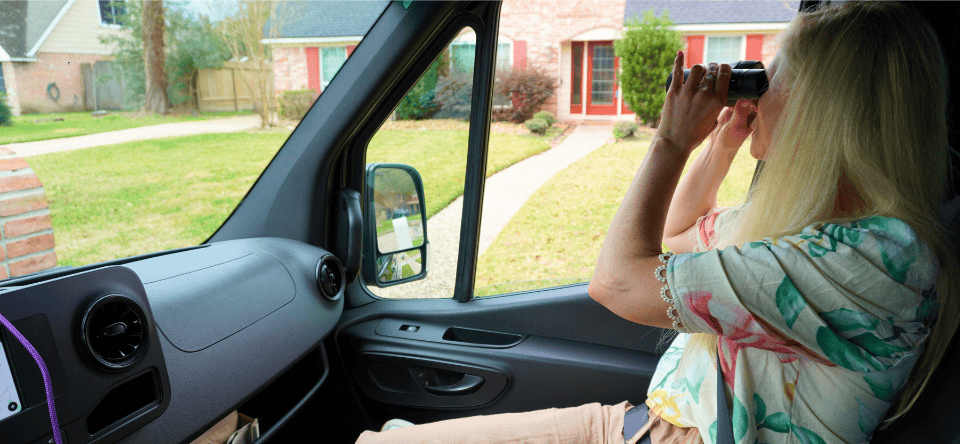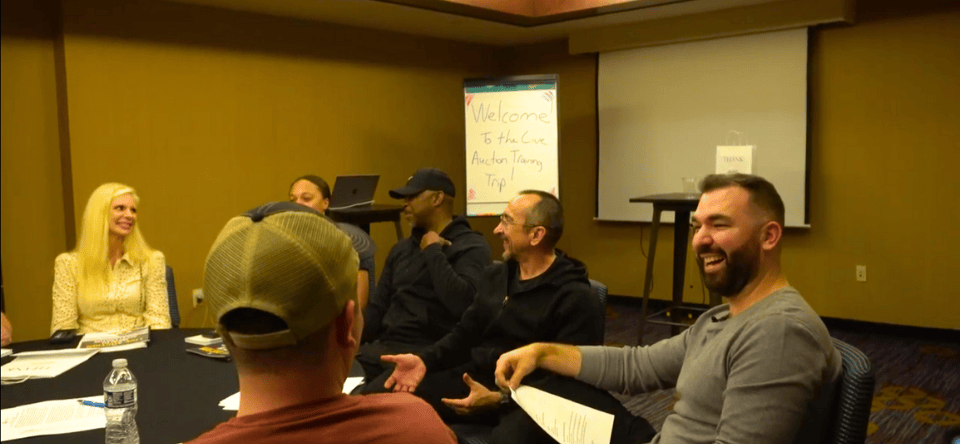Last Updated on September 1, 2025
Table of contents
Are you discouraged because houses at a tax deed sale sold for much more than you wanted to pay? This happens a lot. Many beginners go to several sales before they buy their first property. Instead of quitting, it helps to know why prices can go high and what you can do next time.
Why Some Tax Deeds Sell for High Prices
Tax deed auctions are public sales where local governments sell homes that have unpaid property taxes. In many states, the first bid covers the back taxes plus interest and fees. When several people want the same property, the price can go up fast. Prices can be high for several reasons:
- Not many properties – only a few houses may be for sale in a busy area, so people bid more.
- Other buyers willing to pay more – experienced investors or large funds may pay more than you feel comfortable paying.
- Limited information – tax deed properties are sold as is. You cannot look inside, so you rely on a quick drive‑by and public records. If you don’t research well, you may offer more than you should.
Keep in mind that a high price at one sale does not mean every sale will be the same. Counties have sales often, and the group of bidders is always changing.
Keep Showing Up – Persistence Matters
It is completely normal to participate in multiple auctions and not secure a win each time. Don’t let this discourage you. Instead, approach each auction as a valuable opportunity to gain insights and experience. Take note of bidding strategies, evaluate the items being offered, and observe the behaviour of other bidders. Each sale can provide lessons that will help you refine your approach and improve your chances of success in future auctions. Remember, persistence is key in this journey.
Refine Your Process
If tax deeds always sell for more than you expected, change how you work:
- Learn the rules – Each state has its own rules. For example, in Florida, a tax deed sale happens after a homeowner has not paid taxes for two years. Knowing the rules helps you know when you might get the property.
- Research the market – Ask county workers for lists of upcoming tax deed sales or use trusted online services. Choose homes based on location, starting bid and what they could sell for later.
- Check carefully – Drive by the house to see the outside, read county records and look at maps. Because you can’t go inside, you need to collect as much information as you can to avoid bad surprises.
- Set a realistic budget – Decide the highest amount you will bid. Overpaying might mean you lose money when you try to sell. Count in repairs, time you hold the property and selling costs.
- Plan your exit – Before you bid, know if you will sell, rent or keep the house. Look at local rents and sale prices. A clear plan helps you stick to your maximum bid.
- Learn from others – Make friends with experienced investors. PropertyOnion says that having a mentor can help you learn much faster. Join groups, attend workshops and think about formal training.
Key Steps to Improve Your Tax Deed Bidding Strategy
| Step | What to Do | Why It Matters |
| Learn the rules | Study state and county rules; know the starting bid and redemption periods. | Prevents surprises at the sale and helps you know when you might get the property. |
| Research the market | Get property lists and pick by location, price and what it could be worth. | Keeps you focused on good deals instead of random bids. |
| Check carefully | Drive by houses and read tax records. | Helps you avoid houses with big problems. |
| Budget and exit plan | Include repair, holding and selling costs; decide if you will sell, rent or keep. | Stops you from bidding too high and helps you make money. |
| Learn from others | Watch other investors and make connections. | Makes learning faster and may show you new chances. |
Focus on Growth Rather Than Immediate Wins
Being persistent does not mean you ignore mistakes. After each sale, look back at what you did and make changes. Maybe you should look at other counties, join online auctions or try over‑the‑counter deeds (properties that did not sell at the auction). Diversifying can also help. Some investors buy tax liens as well as deeds. When you buy a tax lien, you pay the back taxes, and then the homeowner pays you back the taxes plus interest, which can be between 4 % and 36 %. You usually do not end up owning the property, but the interest can give you a steady income, and you need less money up front.
Bidding Plan to Avoid High Tax Deed Price
- Pick an area.
Start with counties near you or states where the rules are clear and sales happen often.
- Collect the list.
Go to county websites, sign up for sale alerts or use trusted services to get spreadsheets of upcoming tax deed properties. Note details like the parcel number, address, value and starting bid.
- Make a short list.
Cross off houses that are too expensive, in bad areas or have environmental problems. Check for building code violations or other liens that could cause trouble.
- Estimate value and repairs.
Look at similar sales, use online real‑estate sites and drive by to guess what the house is worth. Think about worst‑case repair costs since you must buy it as‑is.
- Set your top price.
Subtract all costs (purchase, repairs, holding costs and the profit you want) from the price you think you can sell it for. This number is your maximum bid. Do not go higher.
- Go to the auction.
Whether you go in person or online, arrive early, sign in and check how to pay. Watch how the bids go. If the price goes past your top number, stop bidding and save your money for the next sale.
- Finish the purchase.
If you win, pay by the deadline – often the full price is due within one day. File any needed papers right away and start on your exit plan.
Frequently Asked Questions (FAQ)
A tax deed sale is a public auction where a county sells a house or land with unpaid property taxes. The starting price usually covers the back taxes, interest and fees. The highest bidder becomes the owner of the property, depending on any redemption period set by law.
A tax lien is a legal claim against a property when the owner does not pay taxes. Investors can buy tax liens and get interest on the unpaid tax. The owner must repay the tax plus interest, which varies by state. A tax deed sale, by contrast, gives the house or land to the highest bidder. With liens, you almost never get the property; with deeds, you become the owner.
High bids happen when several people want the same house, when there are only a few houses for sale, or when new bidders pay too much because they did not do their research well. To avoid overpaying, set a maximum bid based on your analysis and stick to it.
You cannot go inside before the sale, and tax deed properties are sold “as is.” However, you can drive by to see the outside, look up its tax history and use maps to view the property. Careful checking is essential to avoid bad surprises.
In some states, the former owner can repay the taxes and get the property back during a redemption period. If this happens, you might get back what you paid plus interest. Always check the rules in your state before bidding.
Many counties now hold sales online, while others still require you to go in person. Contact your county’s tax office or visit its website to learn how it runs sales. Online sales let you bid on properties in other parts of the country.
Final Thoughts
Don’t let what feels like failure discourage you. Use it as a stepping stone to improve. Stay consistent, put in weekly or even daily effort, and continue learning. Check out our YouTube channel for more videos packed with tips and insights to help you succeed in tax lien and tax deed investing, invest in training, and connect with experienced investors. The effort you invest now will pay off in the long run.
If this resonates with you, make a plan to attend your next tax sale armed with better strategies. Remember, persistence is key to success in this business.
-Dustin









